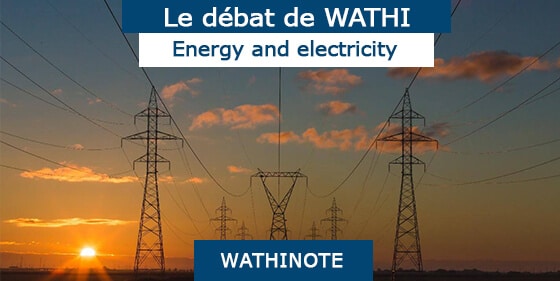

Affiliated organization : Renewable Energy World
Type of publication : Article
Date of publication : March 2017
How do we describe energy poverty? Is it the lack of access to electricity? Is it the number of hours spent in gathering fuelwood for cooking and other domestic activities? Or is it the use of captive generator sets as backup for poor electricity supply?
Energy poverty can be described in all these ways. It is, therefore, not a mistake to say that energy is needed for the entire well-being of a person. Thus, to ensure the well-being of a person requires provision of sustainable energy supply. However, about 80 percent of the world energy today is supplied by fossil fuels. The use of fossil fuels for economic related activities like electricity generation, agriculture and transportation leads to (GHG) emissions into the atmosphere, which has been shown to cause global warming and in turn lead to climate change.
The demand for energy in Nigeria has been increasing rapidly over the last two decades, owing to the increase in standard of living, economic development and population. The Energy Commission of Nigeria conducted a study with the Model for Analysis of Energy Demand (MAED) and projected Nigeria energy demand under a 7 percent GDP growth scenario to be 190 Mtoe by 2030.
Nigeria is blessed abundantly with renewable energy most especially solar. However, the use of renewable energy is still at an infant stage of development in the country
At present, Nigeria is in energy crisis and in dire need of energy security. Unfortunately, Nigeria energy supply system is dominated with fossil fuels, with oil and natural gas accounting for 70 percent of the electricity generation mix.
Nigeria has had its own share of the impacts of climate change. This effect can be seen in the constant erosion and flooding of the Niger-Delta region of the country, the desertification of the northern region and the drying up of lake Chad. If actions are not taken to combat climate change, the cost of adaptation will certainly be more than the cost of mitigation. For instance, the post disaster assessment of the 2012 flood in Nigeria estimated the amount of damage caused to be around US$17 billion. This amount is over 1 percent of the real GDP in that year.
The use of renewable energy will help to decouple energy use from GHGs emissions as they do not release GHGs like fossil fuels. Nigeria is blessed abundantly with renewable energy most especially solar. However, the use of renewable energy is still at an infant stage of development in the country.
The practice of energy efficiency in the sense of demand side management and the use of energy efficient appliances is also another way to combat climate change in Nigeria. Through the practice and use of energy efficient appliances, the demand for energy will be reduced and hence, the demand for fossil fuels will also be reduced. This change will go a long way to save our climate.
Nuclear energy is also another option for meeting up with energy security and maintaining a low-carbon economy in Nigeria. However, given the current trend of energy usage and the management of energy facilities in Nigeria; it is clear that Nigeria is not yet ready to deploy nuclear energy in its energy system.
The federal government of Nigeria is not misinformed about the energy-climate nexus and thus has drafted the National Renewable Energy and Energy Efficiency Policy (NREEEP) through the Energy Commission of Nigeria. The policy document set out comprehensive policies and measures for the various sectors of the economy, which, among other things, include the integration of renewable energy into the electricity mix, the use of clean fuels for cooking, and modal shift in the transport sector.
Nigeria pledged to cut down its emissions unconditionally by 20 percent below business-as-usual by 2030. That pledge implies that Nigeria is willing to decarbonize its energy sector. To achieve this feat will require drastic change in the energy sector, and choice of technologies will be a key element in this.
In sum, to match Nigeria energy supply to the growing demand in the context of climate change will require the massive deployment of renewable energy technologies and the use of energy efficient appliances in all facets of the economy.
Nigeria pledged to cut down its emissions unconditionally by 20 percent below business-as-usual by 2030. That pledge implies that Nigeria is willing to decarbonize its energy sector
There is need for international support in the form of technology transfer and capacity building, as it will be very difficult for Nigeria to achieve this alone given the current economic recession and the country’s desire to alleviate poverty.
Les Wathinotes sont soit des résumés de publications sélectionnées par WATHI, conformes aux résumés originaux, soit des versions modifiées des résumés originaux, soit des extraits choisis par WATHI compte tenu de leur pertinence par rapport au thème du Débat. Lorsque les publications et leurs résumés ne sont disponibles qu’en français ou en anglais, WATHI se charge de la traduction des extraits choisis dans l’autre langue. Toutes les Wathinotes renvoient aux publications originales et intégrales qui ne sont pas hébergées par le site de WATHI, et sont destinées à promouvoir la lecture de ces documents, fruit du travail de recherche d’universitaires et d’experts.
The Wathinotes are either original abstracts of publications selected by WATHI, modified original summaries or publication quotes selected for their relevance for the theme of the Debate. When publications and abstracts are only available either in French or in English, the translation is done by WATHI. All the Wathinotes link to the original and integral publications that are not hosted on the WATHI website. WATHI participates to the promotion of these documents that have been written by university professors and experts.
